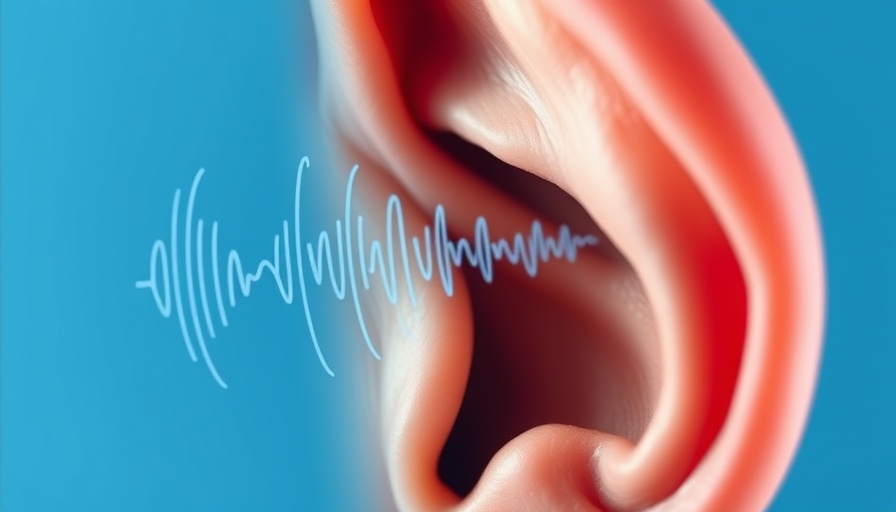
Tinnitus: More Than Just Noise
Tinnitus, often perceived merely as an irritating noise in the ears, can have far-reaching effects on mental health, particularly for those suffering from recent-onset tinnitus. Recent studies have pointed toward a significant connection between this condition and impaired cognitive function. Research shows that individuals with newer tinnitus experiences, defined as lasting less than three months, exhibit notably lower scores on cognitive assessments measuring attention, memory, and processing speed, even when controlling for other factors like age and preexisting health conditions.
Understanding Cognitive Impairment in Tinnitus
The implications of tinnitus extend beyond simple discomfort; it can drain cognitive resources essential for everyday tasks. This draining effect is particularly concerning as it not only hampers the ability to concentrate but may also cause noticeable declines in memory retention. The findings are especially alarming for women and individuals with lower educational backgrounds, who are statistically more prone to cognitive impairments when affected by tinnitus, highlighting the need for proactive intervention.
Linking Tinnitus to Structural Brain Changes
Current research is uncovering alarming links between tinnitus and changes in brain structure. MRI studies indicate that chronic tinnitus may lead to shrinkage in the hippocampus, a brain region integral to memory and decision-making. The connection between hearing loss and cognitive decline becomes clear as participants with tinnitus show signs of atrophy in these critical areas. By understanding these structural changes, we can better assess the risks tied to this condition and advocate for more comprehensive treatment approaches.
Effective Strategies to Combat Tinnitus-Related Issues
To mitigate the risks associated with tinnitus, lifestyle modifications are vital. Strategies include:
- Avoiding Loud Noises: Protecting your hearing is essential to prevent further acoustic injury.
- Enhancing Sleep Quality: Quality sleep plays a crucial role in cognitive function and may help alleviate some symptoms of tinnitus.
- Increasing Magnesium Intake: Magnesium supplementation has been linked to improved brain health, potentially buffering against cognitive decline.
- Utilizing Relaxation Techniques: Regular mindfulness and relaxation practices can help calm the nervous system, providing relief from the stress exacerbating tinnitus symptoms.
Incorporating such strategies can not only improve overall well-being but may also help safeguard cognitive function in those battling tinnitus.
Community Awareness and Support
As awareness around tinnitus and its cognitive impacts grows, it's essential for communities, especially in places like Massachusetts, to foster environments conducive to health discussions. Support groups and educational seminars can empower individuals to share experiences and coping strategies, diminishing the stigma often associated with tinnitus. This collective consciousness can improve early diagnosis and treatment options, ultimately enhancing quality of life.
Final Thoughts: Recognizing the Impacts of Tinnitus
The relationship between tinnitus and cognitive function underscores a critical area of concern for public health, often overlooked in discussions about hearing health. Recognizing the broader implications of tinnitus can lead to meaningful dialogue about prevention and treatment strategies, ultimately safeguarding mental health. If you or someone you know is experiencing symptoms of tinnitus, consider seeking evaluation and exploring these recommended lifestyle changes.
 Add Row
Add Row  Add
Add 




Write A Comment